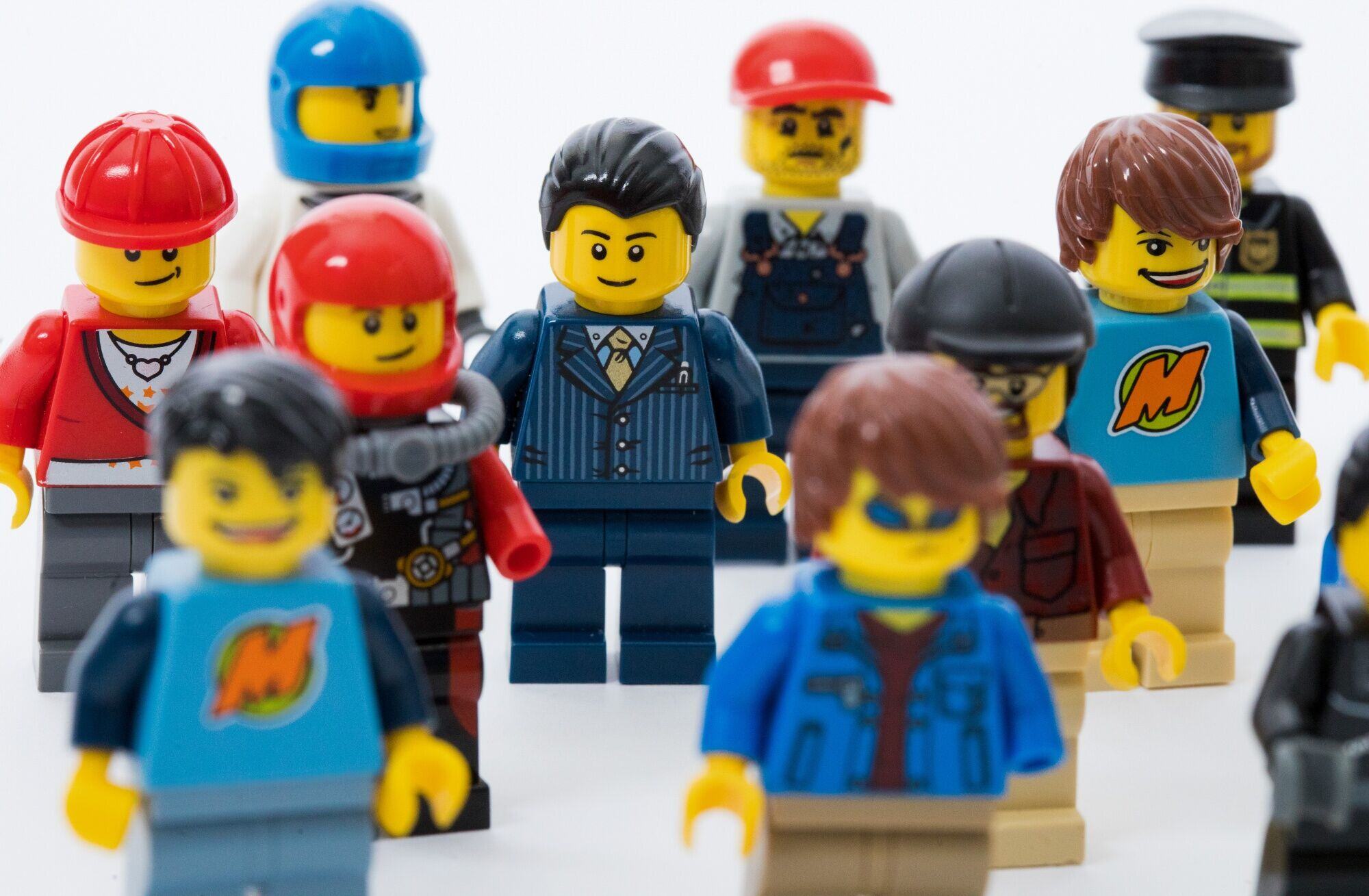
Lego links bonuses for all employees to emissions reductions
What's going on in the world of ESG, CSRD, CSDDD, SDGs etc...
1. LEGO LINKS BONUSES FOR ALL EMPLOYEES TO EMISSIONS REDUCTIONS
The LEGO Group announced that it will begin tying a portion of bonuses for all salaried employees to emissions reduction goals.
Last year the company pledged to add a carbon KPI to executive remuneration in 2024, as well as to pursue responsible travel policies to reduce employee travel, with a particular focus on international air travel.
LEGO now measures carbon from factories, stores and offices, as well as its Scope 3 business travel emissions. The emissions are measured against the number of bricks manufactured, to provide an intensity metric.
Its targets are still a long way off though.
Lego’s goal is “to reduce our emissions by 37% by 2032 and achieve net zero by 2050”.
Reference: https://www.esgtoday.com/lego-group-ties-bonuses-for-all-employees-to-emissions-reduction-goals/
2. GRI INTRODUCES NEW PUBLICATION TO SIMPLIFY CSRD
In a wonderfully generous act of leadership, The Global Reporting Initiative (GRI) has released a publication to simplify CSRD.
CSRD applies to 42,500 EU companies directly and numerous others indirectly. It covers topics such as Climate, Biodiversity, Water, Workforce, Value Chain Workers, and Business Conduct.
CSRD is based on the Double Materiality concept: Organisations must assess how their operations affect the world, and how sustainability issues affect their business.
The GRI guide is very valuable. You can download it from www.globalreporting.org.
To download a copy of Future Planet's CSRD Implementation Guide, click here.
Reference: https://start.futureplanet.com/navigating-corporate-sustainability-reporting-directive-csrd
3. UK FOLLOWS U.S. AND ADOPTS ISSB CLIMATE FRAMEWORK
Given that the UK is in Europe, it might have been expected that it would follow EU reporting standards rather than the US rules.
However, the UK has decided to follow the the U.S. and adopt the reporting standards from the International Sustainability Standards Board (ISSB). Its European neighbours follow the CSRD/ESRS rules.
Unlike the US, the EU has embraced Double Materiality, where organisations should care about their impact on the world, not just the financial risk of sustainability to business. There is clearly a moral argument here.
Practically speaking though, UK based companies, who operate or serve customers in the EU, will have to adopt EU rules anyway, so the ISSB allegiance will put UK companies at a disadvantage. What do you think?
Reference: https://www.edie.net/expert-taskforce-convened-to-oversee-uks-adoption-of-issb-standards
4. META INVESTIGATED IN THE EU OVER CHILD SAFETY RISKS
Cyberbullying, depression and suicide have been linked to children’s social media use. Tech companies are supposed to have protection mechanisms in place. It appears that Meta might be falling short.
Facebook and Instagram will be investigated for potential breaches of EU online content child safety rules under the EU's Digital Services Act (DSA). The DSA regulates platforms to prevent activities that are illegal or harmful.
'Algorithms, may stimulate behavioural addictions in children, as well as create so-called rabbit-hole effects'.
Age-verification may also be insufficient, enabling to access inappropriate content.
This case does not reflect well on Meta. Time to step up to protect children.
Reference: https://www.business-humanrights.org/en/latest-news/eu-meta-faces-investigation-over-child-safety-risks/
5. MICROSOFT ASK SUPPLIERS TO HELP AS SCOPE 3 EMISSIONS GROW
As many of you will know, Future Planet is a big fan of using Sustainable Procurement to reduce emissions, save money, and help suppliers too. We have seen that work many times.
Microsoft is asking its suppliers to use 100% carbon free electricity to reduce emissions. MSFT’s Scope 3 emissions are up 30% since 2020, though they “remain optimistic”.
Microsoft can go a lot further, and deliver more benefit to all stakeholders, cut emissions, while reducing expenses too, it if takes a more strategic sustainability approach to its supply chain.
Microsoft’s problems are stemming from its datacentres and the AI burden that consumes enormous amounts of water and energy. That’s for another day.
Reference: https://tinyurl.com/3y4hxerv
6. CANADA’S WILDFIRE SEASON ERUPTS IN A REPRISE OF 2023.
Almost a year since the start of the 2023 fire season, fires have erupted all over Canada. At least 500,000 acres have burned so far, much of it in recent days.
Smoke from the blazes has led to air quality alerts for Alberta and its nearby provinces, as well as Minnesota and Wisconsin.
The worst of the smoke so far has been in south west Canada. The air quality reached 'Code Purple' — the most hazardous level.
More than 54,000 square miles of land burned last year. That's twice the size of Greece. At least 17 people died, and air quality alerts were widespread. Smoke went as far south as Georgia and as far east as Greenland.
If you suffer from respiratory challenges, please be aware, and take good care.
Reference: https://www.washingtonpost.com/weather/2024/05/13/canadian-wildfire-smoke-minnesota-wisconsin/
7. URSULA VON DER LEYEN SLAMMED FOR MAJOR CLIMATE MISTAKES
Teresa Ribera wants to be the EU’s next Green Deal chief — and she thinks the woman who might be her boss is making a colossal and damaging mistake.
It's the sharpest attack yet on von der Leyen by a prospective commissioner. Ribera unsparingly went after von der Leyen and her center-right European People’s Party saying that they (EPP) are trying to slow down the Green Deal. She also accuses von der Leyen of cosying up to the far-right parties who have been the core opponents to the Nature Restoration Law and the CSDDD.
The EPP has not been as strong on climate issues as many environmentalist would like.
Ribera’s challenge is brave. The question is whether she will survive the June elections.
8. SHAREHOLDERS CALL FOR SHELL TO CLARIFY CLIMATE TARGETS
This could be a very big deal.
Norges Bank Investment Management (NBIM), one of Shell’s largest investors, urged the company to give investors more information about its plans for the next decade after its new chief executive watered down climate commitments earlier this year.
Shell’s board are due today to face a shareholder resolution backed by 27 of its investors – holding 2.5% of its shares – calling for the company to align its business plans with the Paris climate agreement.
The push, which has been coordinated by the Dutch campaign group Follow This, is the largest such climate rebellion mounted against Shell’s directors.
Our fingers and toes are crossed.
Reference: https://tinyurl.com/bdz5vxj6
9. AUTOMAKERS LOBBY AGAINST POLICIES FAVOURING EVS
It feels that across the world EV momentum is stuttering. Sales are stalling. Tesla’s charging network is being curtailed. Now the automakers are revolting.
A new analysis of the lobbying practices of 15 automakers and trade bodies revealed that brands producing the lowest proportion of EVs are pushing hardest against progressive policies to cut emissions.
The report author, InfluenceMap, has accused Mazda, Honda and Toyota of lobbying against new emissions standards for light-duty vehicles in the US.
Only one automaker – Tesla – is identified as supportive of this policy in the US. Other opponents include Volkswagen, Stellantis, Tata Motors, Nissan, Mercedes-Benz, Hyundai, General Motors, Ford and BMW.
Reference: https://www.edie.net/automakers-lobbying-strongly-against-progressive-ev-policies-report-reveals
10. FOREVER CHEMICALS (PFAS) UBIQUITOUS IN THE GREAT LAKES
The Great Lakes collectively hold 20% of the world’s fresh water and 95% of North America’s fresh surface water supply. 10% of the U.S. population and 35% of Canadians calling the water basin their home.
Now, toxic “forever chemicals” have been found to be entering this critical water supply through precipitation and air, reaching cities of all sizes along U.S. and Canadian shores.
Levels of the compounds, per- and poly-fluoroalkyl substances (PFAS), remain uniform in precipitation across the lakes but vary in the air, with more in urbanised areas.
PFAS are present in industrial waste, many firefighting foams and household products, and have emerged as a serious threat due to their persistence in the environment.
11. COURT TO CONSIDER RUSSIA’S FIRST EVER CLIMATE LAWSUIT
These Russian climate activists are inspiring.
The plaintiffs in this case against Russia are environmental group Ecodefense and 18 activists from environmental, climate, human rights movements, as well as those working to protect the rights of indigenous peoples.
The plaintiff’s claim is that Russia’s current climate policy violates basic rights to life, health, and a clean environment.
Climate activists in Russia routinely face physical violence, including beatings, unlawful imprisonment, and damage to their property. One of the most prominent climate activists, Arshak Makichyan, had to flee to Germany following the stripping of his Russian citizenship.
These people are certainly braver than me.
Reference: https://ecodefense.ru/2024/05/09/the-constitutional-court-will-consider-russias-first-ever-climate-lawsuit/
12. ROMANIA USING BISON TO SUPERCHARGE CARBON REMOVAL
170 European Bison reintroduced to Romania’s Țarcu mountains could help capture and store each year the carbon released by up to 84,000 cars.
Over an area of 48 square kilometres, the bison capture 54kT of carbon each year. They do this through a combination of evenly grazing grasslands, recycling nutrients to fertilise the soil, dispersing seeds and compacting soil to prevent carbon from being released.
“These astonishing results show the potential for reintroduced wild animals to supercharge the ability of ecosystems to draw down atmospheric carbon,” says WWF Netherlands.
This great example shows the benefits of rewilding, reintroducing nature to nature.
Reference: https://tinyurl.com/468smhrx


